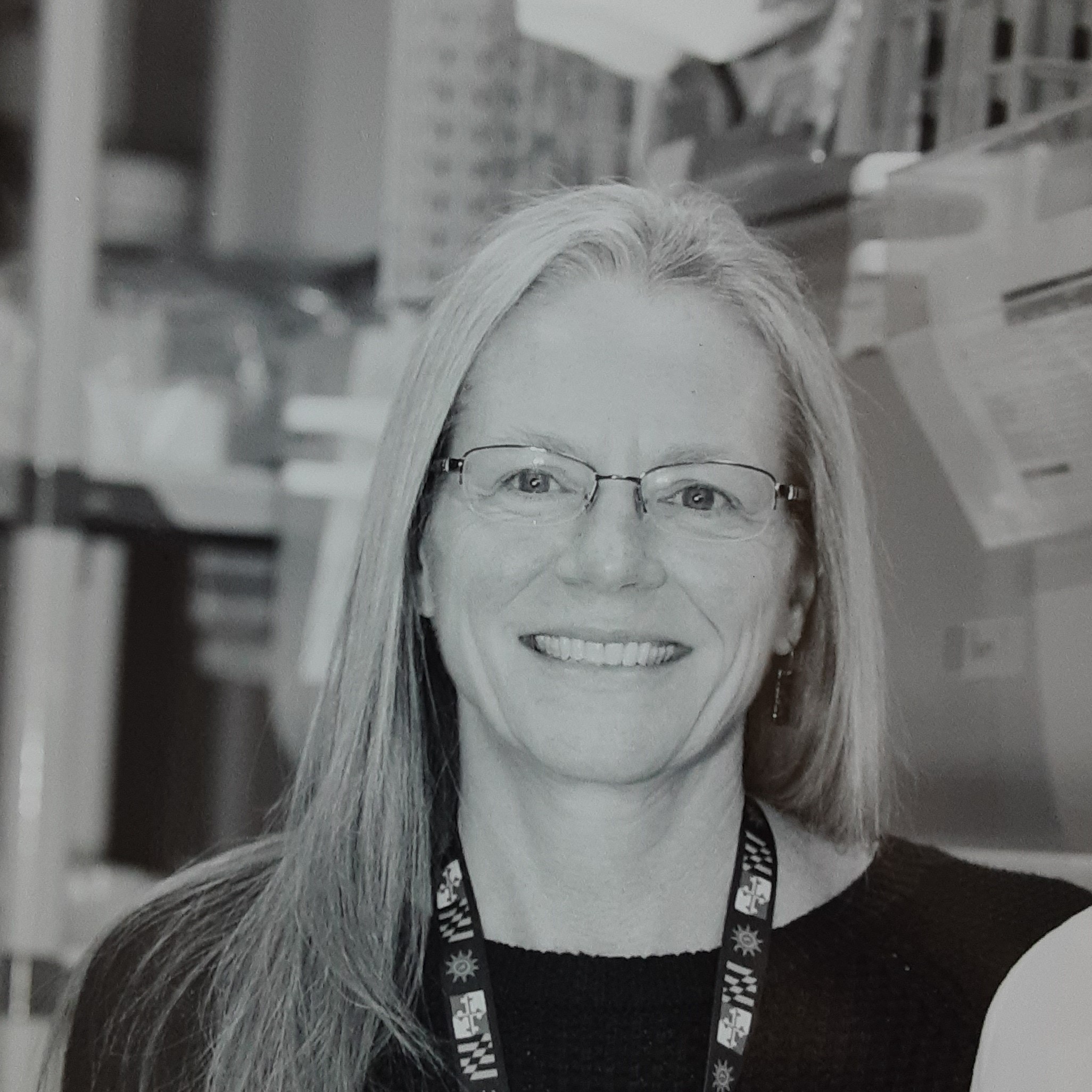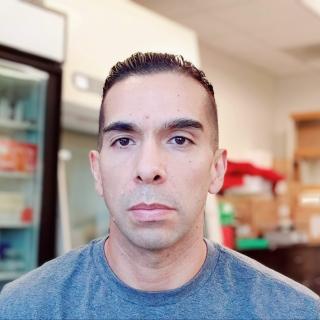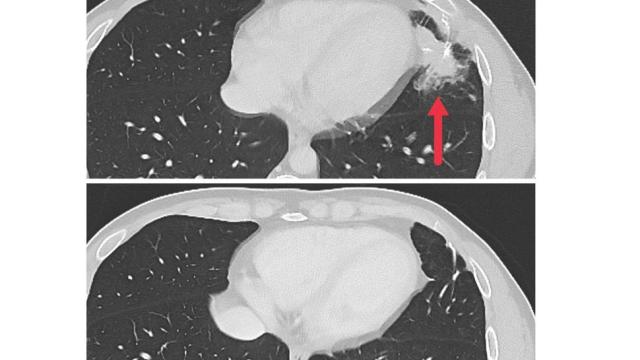
Maria R. Parkhurst, Ph.D.
- Center for Cancer Research
- National Cancer Institute
- Building 10 - Hatfield CRC, Room 4-5744
- Bethesda, MD 20892
- 240-858-3791
- parkhurm@mail.nih.gov
RESEARCH SUMMARY
The primary responsibilities of the Peptide Synthesis and Antigen Discovery Core are to identify populations of tumor reactive T lymphocytes and identify new tumor reactive T cell receptors for use in clinical trials of gene-engineered lymphocytes for patients with metastatic solid tumors.
Areas of Expertise
Research
The Antigen Discovery Core facility provides services to Surgery Branch investigators related to the identification of tumor-associated epitopes and the generation of tumor reactive T lymphocytes for adoptive transfer, most notably through the identification of tumor reactive T cell receptors (TCRs).
This process involves multiple steps and technical challenges, and the Antigen Discovery Core facility has the technical expertise to assist and/or provide services associated with each step as follows:
Step 1. Identification of candidate tumor antigens and epitopes
Step 2a. In vitro stimulation of human peripheral blood lymphocytes (PBLs) with tumor-associated peptides
Step 2b. Immunization of HLA transgenic mice with human tumor antigens and in vitro stimulation of lymph node cells or splenocytes
Step 3. Evaluation of T cell function
Step 4. Isolation of TCR alpha and beta chains from reactive clones
Step 5. Introduction of TCR alpha and beta chains into human T cells by either RNA electroporation or retroviral transduction and subsequent functional evaluation
Step 6. Modification of TCR alpha and beta chains to improve function
Step 7. Transduction and expansion of large numbers of T cells for patient treatment
Over the last 10 years, the Antigen Discovery Core has led efforts to develop multiple tumor reactive TCRs for use in gene therapy trials as follows:
- HLA-A*0201 restricted CEA reactive TCR: This TCR was used in a clinical trial to treat patients with metastatic colorectal cancer.
- HLA-A*0201 restricted MAGE-A3 reactive TCR: This TCR was used in a clinical trial to treat patients with metastatic cancers.
- HLA-A*0201 restricted NY-ESO-1 reactive TCR: A clinical grade retroviral supernatant encoding this TCR has been made and is awaiting use in a clinical trial.
- HLA-DRbeta1*0401 restricted tyrosinase reactive TCR: A clinical grade retroviral supernatant encoding this TCR has been made and is awaiting use in a clinical trial.
- HLA-DPbetat1*0401 restricted MAGE-A3 reactive TCR: A clinical grade retroviral supernatant encoding this TCR has been made and is awaiting use in a clinical trial.
- HLA-DRbeta1*0401 restricted gp100 reactive TCR: A retroviral vector encoding this TCR has been constructed and evaluated in pre-clinical assays.
- HLA-DPbeta1*0401 restricted NY-ESO-1 reactive TCR: A retroviral vector encoding this TCR has been constructed and evaluated in pre-clinical assays.
- HLA-A*0201 restricted NY-BR-1 reactive TCR: A retroviral vector encoding this TCR has been constructed and is currently being evaluated in pre-clinical assays.
- HLA-A*0201 restricted WT1 reactive TCR: A retroviral vector encoding this TCR has been constructed and is currently being evaluated in pre-clinical assays.
In addition, we have led efforts to identify HLA-A2 restricted tumor reactive TCRs specifically reactive with the following antigens: MAGE-A1, MAGE-A3 (epitopes other than MAGE-A3:112-120 referred to above), SSX2, Survivin, CEA (epitopes other than CEA:691-699 referred to above), hTERT, PRAME, Mammaglobin-A, MMP11, VEGFR2, and mutated antigens identified by exome and RNA sequencing of tumor cells. However, these efforts have not yet been pursued clinically because we have not yet been able to identify T cell populations that recognize naturally processed epitopes from these antigens.
Publications
A high avidity WT1 reactive T cell receptor mediates recognition of peptide and processed antigen but not naturally occurring WT1 positive tumor cells
Stable, Nonviral Expression of Mutated Tumor Neoantigen-specific T-cell Receptors Using the Sleeping Beauty Transposon/Transposase System
Prospective identification of cancer mutation-specific lymphocytes in peripheral blood of melanoma patients
Isolation of neoantigen-specific T cells from tumor and peripheral lymphocytes
Cancer immunotherapy based on mutation-specific CD4+ T cells in a patient with epithelial cancer
Biography

Maria R. Parkhurst, Ph.D.
Dr. Parkhurst earned a B.S. in Chemical Engineering from the University of Maryland and subsequently a Ph.D. in Chemical Engineering from the Johns Hopkins University. During her Ph.D. studies, she was awarded a Howard Hughes Medical Institute predoctoral fellowship and studied leukocyte migration in mucus and interaction with mucosal epithelia. She then completed a postdoctoral fellowship in the Surgery Branch of the NCI and worked on developing and monitoring T cell epitope tumor vaccines. She then became a staff scientist in the Surgery Branch of the NCI as the manager of the Peptide Synthesis Core Facility. Since that time, the clinical pursuits of the Surgery Branch have shifted from peptide vaccines to treating patients with adoptively transferred T lymphocytes. As such, Dr. Parkhurst is now the manager of the Antigen Discovery Core whose primary responsibilities are to generate new populations of tumor reactive T lymphocytes and identify new tumor reactive T cell receptors for use in gene therapy clinical trials.

